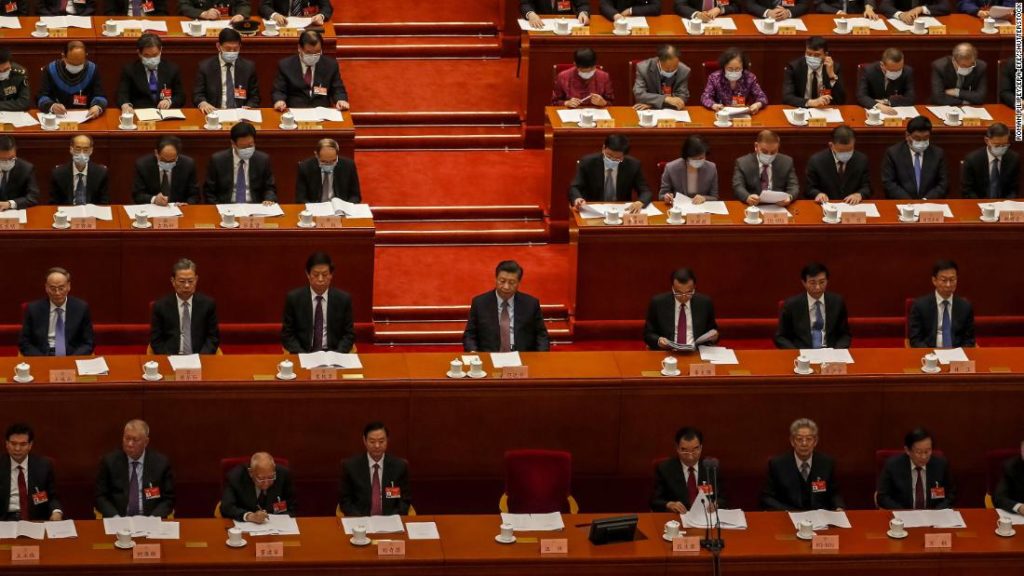The new target is more than what China needs to accomplish to get back on track with President Xi Jinping’s long-term goal for the economy. To reach Xi’s plans to double GDP by 2035, China would need to grow a bit less than 5% this year, with similar growth through the next decade or so.
Li’s remarks came during China’s “Two Sessions” meeting, the country’s biggest political gathering of the year. Beforehand, there had been an intense debate in the country about whether to bring back a GDP target, which it abandoned last year for the first time in decades as the coronavirus took hold.
“In setting this target, we have taken into account the recovery of economic activity,” Li said on Friday, adding that the goal would “help sustain healthy economic growth.”
Some experts — including Yang Weimin, the former secretary-general of the National Development and Reform Commission — have encouraged such guidance, saying that China needs to set benchmarks to keep its growth on pace.
But others have been wary about bringing back GDP targets just yet. Ma Jun, a policymaker at the People’s Bank of China, said earlier this year that goals that are too ambitious could encourage local governments to borrow too much, heightening the risk of accumulating “hidden” debt.
A balanced recovery
China spent hundreds of billions of dollars last year on programs to stimulate economic activity, including major infrastructure projects and cash handouts for its citizens.
That amount of spending isn’t carrying over to 2021.
Li said Friday that China has set the deficit-to-GDP ratio for the year at about 3.2%, slightly lower than that of last year, “in view of the effective containment of Covid-19 and gradual economic recovery.”
Like other countries, China has to figure out how to balance a need for at least some additional stimulus as the recovery continues with a growing debt burden.
After all, the rate of growth last year was still China’s slowest in decades. And there are some points of weakness in the economy: Retail sales have lagged, for example, suggesting that people are still wary of spending money as the country struggles to stamp out Covid-19 outbreaks entirely.
Chinese leaders had also earlier pledged that there will be no dramatic changes in economic policy this year.
“We are facing a paradox,” said Ma, the central bank policymaker, during an economic conference in January. “We need to shift our monetary policy, but it can’t be too quick.”
Other challenges
Guo also warned that bad loans could continue to pose risks to the financial system, which could slow the pace of recovery.
A slew of major state-owned firms have declared bankruptcy or defaulted on loans in the past year — a concerning trend for a sector that Xi has wanted to bolster as a major driver of economic activity and innovation. Defaults by state firms surged to $15.5 billion in 2020, up 220% from the previous year, according to recent estimates by Jinan-based Zhongtai Securities.
China has other challenges, too.
— Steven Jiang contributed to this report.
You may also like
-
Afghanistan: Civilian casualties hit record high amid US withdrawal, UN says
-
How Taiwan is trying to defend against a cyber ‘World War III’
-
Pandemic travel news this week: Quarantine escapes and airplane disguises
-
Why would anyone trust Brexit Britain again?
-
Black fungus: A second crisis is killing survivors of India’s worst Covid wave

